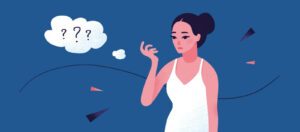Relationships are a fundamental aspect of human life. However, for some individuals, establishing and maintaining relationships can be incredibly challenging due to a condition known as Relationship Detachment Disorder (RDD). This disorder is characterized by a persistent difficulty or unwillingness to form close relationships. This blog aims to shine a light on this often misunderstood condition, breaking down its causes, symptoms, and potential treatment approaches.
Contents
What Is Emotional Detachment Disorder In Relationships?
 Relationship Detachment Disorder (RDD) is a psychological condition characterized by an individual’s persistent difficulty or inability to establish and maintain close, meaningful relationships. People with RDD often experience a pervasive sense of emotional detachment, avoiding emotional intimacy with others due to fear of rejection, abandonment, or loss. This emotional distancing can apply to a variety of relationships, including familial, platonic, and romantic.
Relationship Detachment Disorder (RDD) is a psychological condition characterized by an individual’s persistent difficulty or inability to establish and maintain close, meaningful relationships. People with RDD often experience a pervasive sense of emotional detachment, avoiding emotional intimacy with others due to fear of rejection, abandonment, or loss. This emotional distancing can apply to a variety of relationships, including familial, platonic, and romantic.
It’s important to note that RDD is not about a lack of desire for connections or companionship. Rather about a deep-seated fear and avoidance of emotional intimacy. Those with RDD often crave connection, but their fear of vulnerability and potential emotional pain leads to a pattern of detachment and isolation.
What Are The Signs Of Detachment Disorder?
People with Relationship Detachment Disorder (RDD) often display a range of signs and symptoms that can impact their ability to form and maintain close relationships. These symptoms may vary widely between individuals. But some of the most common signs include:
- Emotional Distance
One of the most prevalent signs of RDD is maintaining emotional distance from others. This could manifest as a lack of emotional response, difficulty expressing emotions, or an inability to form deep emotional connections with others.
- Avoidance of Intimacy
Individuals with RDD might avoid situations that could potentially lead to emotional closeness. Such as deep conversations, shared experiences, or even physical touch.
- Preference for Solitude
While not universally applicable, many individuals with RDD might prefer spending time alone, finding solace in their own company rather than interacting with others.
- Difficulty Trusting Others
Trust plays a key role in building strong relationships. People with RDD often struggle with trust issues. That can stem from fear of betrayal or abandonment.
- Lack of Empathy
Though not always the case, some individuals with RDD might struggle to empathize with the emotions of others. This makes it challenging to connect on a deeper level.
- Depersonalization
Some individuals with RDD may experience feelings of being detached from themselves. As if they are an outside observer of their own life.
It’s important to remember that these signs are not definitive proof of RDD and could be indicative of other mental health conditions. If you or someone you know is exhibiting these signs, it’s crucial to consult with a mental health professional for an accurate diagnosis and treatment plan.
Why Do I Feel Like I Don’t Love Anyone?
 Feeling like you don’t love anyone can be a complex and unsettling experience. This feeling can arise due to various reasons. And it’s important to understand that it doesn’t necessarily mean you’re incapable of love or emotion.
Feeling like you don’t love anyone can be a complex and unsettling experience. This feeling can arise due to various reasons. And it’s important to understand that it doesn’t necessarily mean you’re incapable of love or emotion.
Here are a few possible explanations for these feelings:
1. Emotional Exhaustion or Burnout
If you’re under a lot of stress or have been emotionally drained due to events in your life (such as a significant loss, high-pressure job, or ongoing conflict), you may experience emotional numbness or the feeling of not being able to love. This could be your body’s way of coping with overwhelming stress, giving you a temporary respite from intense emotions.
2. Depression
One of the common symptoms of depression is a general loss of interest or pleasure in activities and relationships that you once enjoyed. If you’re dealing with depression, it’s possible to feel detached or disconnected from your emotions, making it seem like you don’t love anyone.
3. Fear of Vulnerability
Sometimes, the feeling of not being able to love is more about self-protection than actual lack of emotion. Fear of being vulnerable, of being hurt, or of abandonment might lead you to consciously or unconsciously distance yourself from your emotions.
4. Past Trauma
Experiences of trauma or abuse can significantly impact your ability to form emotional connections. If you’ve been hurt in the past, you might find it difficult to trust others and open yourself up to love.
If you’re experiencing feelings of not being able to love anyone, it’s important to consult with a mental health professional. They can provide a safe space to explore these feelings and help you identify any underlying issues that may need to be addressed.
What Are The Potential Causes?
The potential causes of Relationship Detachment Disorder (RDD) can vary widely and often stem from a complex interaction of genetic, psychological, and environmental factors. Here are a few possible causes:
- Childhood Trauma: Experiences of neglect, abuse, or abandonment during childhood can lead to difficulty in forming secure attachments later in life. Children who have not had consistent, loving care may grow into adults who find it difficult to trust others and form stable relationships.
- Mental Health Disorders: RDD can be associated with other mental health conditions like avoidant personality disorder, schizoid personality disorder, post-traumatic stress disorder (PTSD), and certain types of anxiety disorders. These conditions can contribute to the fear and avoidance of emotional closeness.
- Genetics: While there’s not enough evidence to assert a clear genetic cause, some researchers suggest that genetics may play a role in RDD. It could be that certain genetic factors predispose individuals to traits like high sensitivity or introversion, which could, in turn, contribute to the development of RDD.
- Bullying or Peer Rejection: Experiences of bullying or social rejection during formative years can lead to a fear of future rejection and subsequent emotional detachment.
- Lack of Role Models: Not having positive relationship role models growing up can make it difficult for individuals to learn how to form healthy relationships. Without this guidance, they may struggle with emotional intimacy and understanding relational norms.
It’s important to remember that while these factors may contribute to the development of RDD, they do not guarantee it. Many individuals who experience these conditions or circumstances do not develop RDD. It is the unique interplay of these factors. Along with an individual’s personal resilience and coping mechanisms. That determine the development of the disorder.
Can Detachment Disorder Be Cured?
 While Relationship Detachment Disorder (RDD) can be a challenging condition to manage. But with the right therapeutic interventions, individuals can learn to navigate their emotions and form healthier, more fulfilling relationships. ‘Cure’ may not be the most accurate term to use in this context. As the aim of treatment is not to eliminate every symptom but to provide individuals with the skills and strategies to manage their symptoms.
While Relationship Detachment Disorder (RDD) can be a challenging condition to manage. But with the right therapeutic interventions, individuals can learn to navigate their emotions and form healthier, more fulfilling relationships. ‘Cure’ may not be the most accurate term to use in this context. As the aim of treatment is not to eliminate every symptom but to provide individuals with the skills and strategies to manage their symptoms.
The primary treatment approach for RDD typically involves psychotherapy, often in the form of cognitive-behavioral therapy (CBT). Remember, progress may be slow and requires patience. But with the right support, individuals with RDD can learn to form meaningful, satisfying relationships.
How To Overcome Relationship Detachment Disorder?
Overcoming Relationship Detachment Disorder (RDD) often involves a multi-faceted approach. Here are some key steps:
Seek Professional Help
The first step in overcoming RDD is seeking help from a mental health professional. Psychologists, psychiatrists, or therapists can diagnose the disorder and provide appropriate treatment plans. Cognitive-behavioral therapy (CBT) is often beneficial as it helps individuals identify and challenge their negative thought patterns and beliefs about relationships.
Engage in Therapy
Regular therapy sessions can provide the necessary tools and strategies to manage RDD symptoms. Other therapeutic approaches like dialectical behavior therapy (DBT) or schema therapy can also be beneficial.
Practice Mindfulness
Mindfulness practices, such as meditation or yoga, can help individuals stay present in the moment rather than dwelling on past experiences or worrying about future possibilities. This can help to manage fears of vulnerability or rejection.
Nurture Positive Relationships
Building and maintaining positive relationships can be therapeutic in itself. Try to foster relationships that are understanding, respectful, and supportive. Communicate openly about your struggles and boundaries.
Develop Coping Strategies
Learning effective coping strategies can be beneficial for managing anxiety or fears associated with intimacy. This might include breathing exercises, grounding techniques, or progressive muscle relaxation.
Self-Care
Physical health significantly influences mental well-being. Regular exercise, a balanced diet, adequate sleep, and minimizing the use of alcohol or other substances can all contribute to better mental health.
Medication (if needed)
If RDD co-occurs with other mental health disorders such as depression or anxiety, medication might be part of the treatment plan.
Support Groups
 Joining a support group, either in-person or online, can provide a safe space to share experiences and learn from others dealing with similar challenges.
Joining a support group, either in-person or online, can provide a safe space to share experiences and learn from others dealing with similar challenges.
Remember, overcoming RDD is a journey that requires patience and resilience. There’s no set timeline for recovery, and progress can sometimes be slow. However, with the right support and treatment, individuals with RDD can learn to build healthier, more satisfying relationships.
Conclusion
In conclusion, Relationship Detachment Disorder (RDD), characterized by a persistent difficulty or unwillingness to form close relationships, can significantly impact an individual’s life and overall wellbeing. This condition arises due to a complex interplay of genetic, psychological, and environmental factors and often co-exists with other mental health disorders. It’s crucial to note that those living with RDD often desire connection but struggle to establish and maintain it due to fear of vulnerability and potential emotional pain.
Relationships are complex, and it’s natural for issues to arise along the way. If you have any queries regarding Relationship Counseling experienced therapists at CoupleMantra can help: Book a trial couple therapy session


